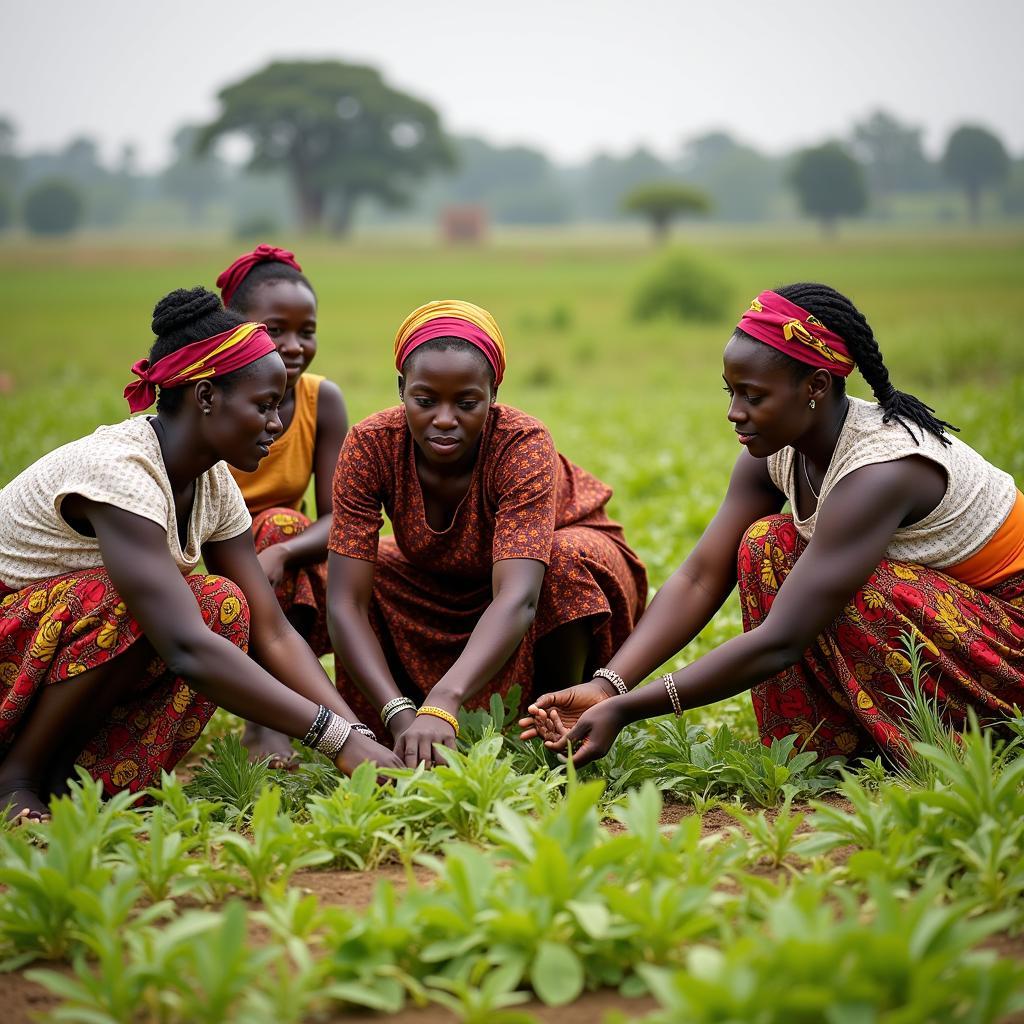A Journey Through African Cultures in South Africa
South Africa, a nation renowned for its diverse tapestry of cultures, offers a captivating glimpse into the heart of Africa. This cultural richness stems from the contributions of indigenous African groups, as well as the influences brought by centuries of immigration and interaction.
From the ancient traditions of the San people to the vibrant rhythms of Zulu music, “African Cultures In South Africa” is a story told through language, art, music, food, and daily life. This article explores this captivating blend of traditions, highlighting the unique aspects of various cultural groups and their impact on shaping the South African identity.
The Tapestry of Cultures: An Overview
South Africa recognizes eleven official languages, reflecting the presence of diverse ethnic groups. While the Nguni group, including the Zulu, Xhosa, Ndebele, and Swazi, constitutes the majority, there are substantial populations of Sotho-Tswana, Tsonga, Venda, and other smaller groups. Each group carries a unique heritage that intertwines with others, creating a dynamic and evolving cultural landscape.
The Zulu: A Legacy of Warriors and Kings
The Zulu people, the largest ethnic group in South Africa, are known for their rich history and strong cultural identity. From the legendary reign of King Shaka Zulu to their fierce warrior traditions, Zulu history is deeply intertwined with South Africa’s past. Today, Zulu culture continues to thrive, manifested in their vibrant music, intricate beadwork, and captivating dance forms.
The Xhosa: A Culture Steeped in Oral Tradition
The Xhosa people, primarily residing in the Eastern Cape, are known for their beautiful language characterized by distinctive “click” consonants. Their history is rich with oral traditions, passed down through generations through storytelling, poetry, and songs. The Xhosa culture emphasizes respect for elders and strong family bonds, values reflected in their social customs and ceremonies.
The Ndebele: Masters of Geometric Art
The Ndebele people are renowned for their distinctive and colorful houses, adorned with intricate geometric patterns. This unique art form, passed down through generations of women, is more than just decoration; it serves as a visual language, communicating social standing, historical events, and even personal expressions.
Beyond the Majority: Exploring Cultural Diversity
While the Zulu, Xhosa, and Ndebele are some of the largest groups, South Africa is home to a myriad of other cultures. The Sotho-Tswana people, known for their agricultural expertise and intricate blankets, contribute significantly to the nation’s artistic and culinary landscape. The Venda people, with their mystical beliefs and legends, add another fascinating dimension to South Africa’s cultural mosaic.
Music and Dance: The Pulse of South African Culture
Music and dance hold a special place in South African culture, serving as a vibrant expression of identity and a powerful tool for storytelling. From the energetic rhythms of Zulu isicathamiya to the soulful melodies of Xhosa maskandi, music transcends language barriers, uniting people in shared experiences and emotions.
Food: A Culinary Journey Through South Africa
South African cuisine is as diverse as its people, a fusion of indigenous ingredients and cooking styles influenced by various cultural groups. From the hearty stews of the Zulu to the flavorful braai (barbecue) enjoyed across cultures, food offers a delicious way to experience the cultural tapestry of South Africa.
“South Africa’s cultural richness is a testament to the power of diversity,” says Dr. Thandiwe Nxumalo, a cultural anthropologist specializing in Southern African traditions. “It’s a reminder that our differences, when celebrated and embraced, can create something truly beautiful and unique.”
Conclusion: Celebrating African Cultures in South Africa
Exploring the diverse African cultures in South Africa is an enriching experience. It’s an invitation to delve into ancient traditions, appreciate vibrant art forms, and witness the harmonious coexistence of diverse cultural expressions. From the bustling cities to the rural landscapes, South Africa offers a unique opportunity to witness the vibrant tapestry of African cultures woven together, shaping a nation’s identity and captivating the world with its beauty and resilience.
FAQs
-
What is the most widely spoken language in South Africa? Zulu is the most spoken home language in South Africa, followed by Xhosa and Afrikaans.
-
What is a braai in South African culture? A braai is a traditional South African barbecue, a social gathering involving grilling meat and socializing with family and friends.
-
What are some popular traditional crafts in South Africa? South Africa is renowned for its crafts, including beadwork, pottery, basket weaving, and wood carving, each reflecting unique cultural aesthetics and techniques.
-
What is the significance of music in African cultures? Music is an integral part of life in many African cultures, serving as a form of entertainment, storytelling, historical preservation, and spiritual expression.
-
What are some cultural etiquette tips for visiting South Africa? When visiting South Africa, it’s respectful to greet people in their native language, even if it’s just a simple greeting.
For any assistance, feel free to contact us:
Phone Number: +255768904061
Email: kaka.mag@gmail.com
Address: Mbarali DC Mawindi, Kangaga, Tanzania
Our customer service team is available 24/7 to assist you.



